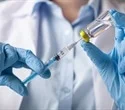Researchers from the Icahn School of Medicine at Mount Sinai have discovered that vaccination against COVID-19 is associated with a lower risk of heart attacks, strokes, and other cardiovascular problems among individuals who were infected with SARS-CoV-2, the virus that causes COVID-19, after analyzing the largest datasets in the United States.
On February 20, the American Academy of Cardiology’s journal released a research letter titled “Impact of Vaccination on Major Adverse Cardiovascular Events in Patients with COVID-19 Infection.”
The research will also be presented in a poster session at the World Congress of Cardiology and the 72nd Annual Scientific Conference of the American College of Cardiology in New Orleans, Louisiana.
It is the first study to look at complete and partial vaccination and the connection to major adverse cardiac events (MACE) in the United States, and it confirms other studies utilizing the Korean COVID-19 registry that were done in a similar manner. The largest national comprehensive database on COVID-19, the National COVID Cohort Collaboration (N3C) database, was used by researchers. The N3C has regularly gathered and standardized data from electronic health records of institutions around the country since its founding in 2020. 1,934,294 patients totaled in this trial, of which 217,843 received mRNA vaccine formulations from Pfizer-BioNTech, Moderna, or viral vector technology from Johnson & Johnson. A statistical method called Cox proportional hazards was used to evaluate the relationship between immunization and MACE.
“To our surprise, even partial vaccination was associated with lower risk of adverse cardiovascular events,” said first study author Joy Jiang, an MD/Ph.D. candidate in the lab of Dr. Nadkarni. “Given the magnitude of SARS-CoV-2 infection worldwide, we hope our findings could help improve vaccination rates, especially in individuals with coexisting conditions.”
Further work will be necessary to elucidate the mechanisms involved from an immunological perspective and clarify the role of SARS-CoV-2 subtypes and reinfections in their relationship to the risk of MACE.




